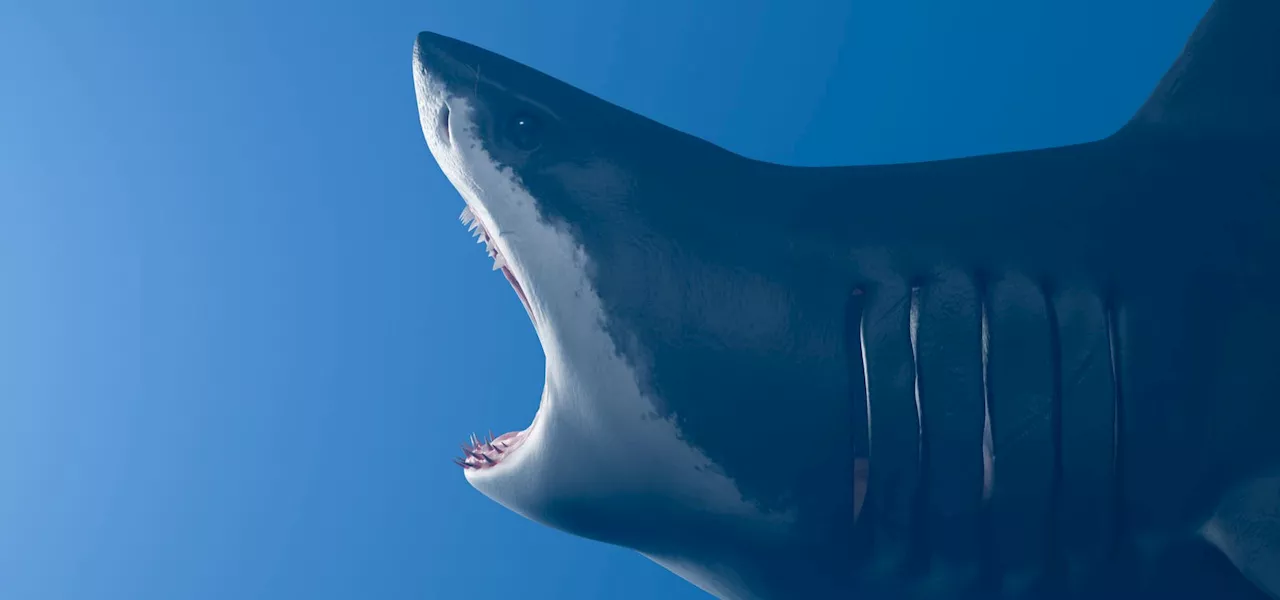Sharks have roamed the open seas for close to half a billion years and have witnessed the Earth’s evolution from a primordial soup to the haven for life it is today.
When we think of Earth’s ancient past, we imagine towering forests of lush greenery being patrolled by dinosaurs and other colossal land predators. Yet, before the first tree rooted itself in the soil, another form of life was already patrolling the planet’s oceans: sharks.
See, unlike the rigid bony skeletons of many modern fish, cartilage is lightweight and flexible, and it gave sharks an edge in speed and maneuverability in the water. This gave it an advantage when it had to avoid larger predators.was relatively small as well, reaching only about 6 feet in length. Its teeth, unlike those of modern sharks, were not replaceable. They were smooth and suited for grasping rather than tearing prey.
In contrast, life on land faced harsh challenges, including high UV radiation, water scarcity, extreme temperature fluctuations and cataclysmic earthquakes. These obstacles delayed the evolution of trees and other terrestrial organisms, according to Jennifer Clack’s 2012Sharks also benefitted from their simple yet effective physiology. A cartilaginous skeleton, combined with streamlined bodies and efficient hunting adaptations, allowed them to dominate early marine ecosystems.
Another hallmark of sharks is their electrosensory system, which allows them to detect the faint electric fields produced by the movement of prey. This adaptation, combined with keen senses of smell and exceptional swimming capabilities, has helped these creatures survive the many challenges posed by our ever-changing planet.. With over 500 species, ranging from the tiny dwarf lanternshark to the massive whale shark, these fish showcase an incredible diversity that has stood the test of time.
Sharks Archaeopteris Earliest Tree Earliest Shark Shark Tooth Living Fossil Example Lanternshark Whale Shark Sharks Trees Age
United States Latest News, United States Headlines
Similar News:You can also read news stories similar to this one that we have collected from other news sources.
 Food lover, 80 years old, still runs kitchen 'with immense pride' after 50 yearsA chef named Giuliana Pierotti, 80, has been working in her restaurant's kitchen for 50 years — and does not expect to slow down soon. Her family says she takes 'immense pride' in her cooking.
Food lover, 80 years old, still runs kitchen 'with immense pride' after 50 yearsA chef named Giuliana Pierotti, 80, has been working in her restaurant's kitchen for 50 years — and does not expect to slow down soon. Her family says she takes 'immense pride' in her cooking.
Read more »
 Animal color vision evolved 500 million years ago, before vibrant fruits, flowersThe earliest use of bright colors in animals served as a warning system, a strategy seen in venomous snakes and poison dart frogs.
Animal color vision evolved 500 million years ago, before vibrant fruits, flowersThe earliest use of bright colors in animals served as a warning system, a strategy seen in venomous snakes and poison dart frogs.
Read more »
 Denver Spent $138 Million in Two Years to Rent, Lease Hotels for Homeless and MigrantsSince January 2023, the City of Denver has purchased three hotels and leased three more to address homelessness, but the strategy started before that.
Denver Spent $138 Million in Two Years to Rent, Lease Hotels for Homeless and MigrantsSince January 2023, the City of Denver has purchased three hotels and leased three more to address homelessness, but the strategy started before that.
Read more »
 Netflix ad-supported tier has 70 million monthly users two years after launchNetflix’s ad-supported tier, which launched in November 2022, has reached 70 million global monthly users.
Netflix ad-supported tier has 70 million monthly users two years after launchNetflix’s ad-supported tier, which launched in November 2022, has reached 70 million global monthly users.
Read more »
 Our ancestor Lucy may have used tools more than 3 million years agoKristina Killgrove is an archaeologist with specialties in ancient human skeletons and science communication. Her academic research has appeared in numerous scientific journals, while her news stories and essays have been published in venues such as Forbes, Mental Floss and Smithsonian.
Our ancestor Lucy may have used tools more than 3 million years agoKristina Killgrove is an archaeologist with specialties in ancient human skeletons and science communication. Her academic research has appeared in numerous scientific journals, while her news stories and essays have been published in venues such as Forbes, Mental Floss and Smithsonian.
Read more »
 'Snowball Earth:' Entire planet was likely covered in ice more than 600 million years agoConor Feehly is a New Zealand-based science writer. He has earned a master's in science communication from the University of Otago, Dunedin. His writing has appeared in Cosmos Magazine, Discover Magazine and ScienceAlert.
'Snowball Earth:' Entire planet was likely covered in ice more than 600 million years agoConor Feehly is a New Zealand-based science writer. He has earned a master's in science communication from the University of Otago, Dunedin. His writing has appeared in Cosmos Magazine, Discover Magazine and ScienceAlert.
Read more »
